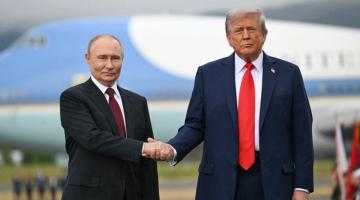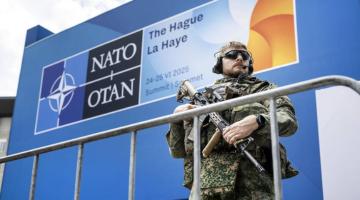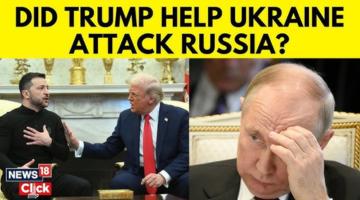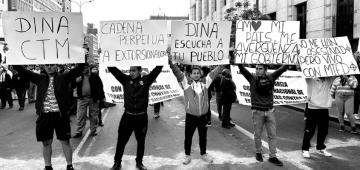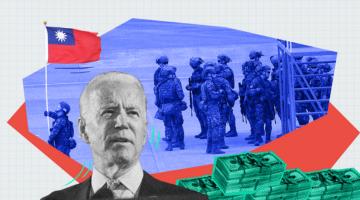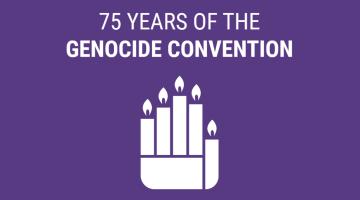NATO was never a good idea gone wrong. It was founded to crush communist, socialist, and anti-colonial movements in Europe and around the world.
Medea Benjamin and David Swanson explain NATO’s supremely violent history in NATO: What You Need to Know.
The organization was born on April 4, 1949, when foreign ministers from 12 nations came together in Washington, D.C. to sign the 1100-page North Atlantic Treaty. Its original members were Belgium, Canada, Denmark, France, Iceland, Italy, Luxembourg, the Netherlands, Norway, Portugal, the United Kingdom, and the United States.
The treaty proclaimed its commitment to peace and the principles of the UN Charter, but “the real glue that brought NATO countries together was opposition to communism and socialism.”
It was created not only to counter the USSR, but also to defeat European communist and socialist movements and crush revolutionary, anti-colonial struggles. At the time of its founding, Britain, France, Belgium, and Portugal were waging vicious campaigns to try to hold on to their African colonies.
The USSR didn’t create the Warsaw Pact until six years later, in May 1955, in response to NATO. The previous year, it had actually asked to join, fearing the revival of German militarism, which had cost between 20 and 30 million Russian lives in World War 2. A shared commitment to preventing another war in Europe, regardless of ideological differences, could of course have changed history, averting the nuclear arms race, but that would have undermined NATO's fundamental purpose.
“NATO also had an economic purpose,” Benjamin and Swanson write. “In its founding ‘Strategic Concept’ paper, NATO conceived the integration of its members to be ‘not just military, but also political, economic, and psychological. NATO countries were expected to disseminate an anti-communist worldview and to promote pro-capitalist, free trade economies.’"
No nation could join NATO without privatizing its economy. In 1997, then Senator Joe Biden told Poland that it would have to privatize its large state-owned enterprises like banks, the energy sector, the state airline, the state copper producer, and the state telecommunications monopoly.
US political leaders before Donald Trump have complained about NATO members not carrying their weight financially, but the alliance has fortified US economic interests favoring privatization, dollar hegemony, and prevention of bilateral trade agreements between member nations and the Soviet Union and then Russia. Europe accordingly acquiesced to US destruction of the Nordstream2 pipeline.
The weapons manufacturers of NATO nations, most of all those of the US, have also greatly benefited by sales to other NATO members, as have Israel’s. A section of the book on NATO and Israel details their exchange of military technologies.
Nations like Romania were made to understand that they could join only after making huge purchases of US weapons.
NATO expansion after the collapse of the Soviet Union
In 1991, after the collapse of the Soviet Union, the people of NATO nations all expected a peace dividend that of course never came. Instead of disbanding, NATO grew from its original 12 members to 32. In keeping with its founding ideology, it requires applicants to practice liberal democracy and market economy and contribute to NATO’s military operations.
Expansion actually met some resistance within the US foreign policy establishment, including the US Senate, with concerns ranging from increased costs, military over-extension overseas, and the consequences of poisoning relations with Russia by adding former Soviet nations.
Expansionists, however, always prevailed. The dissolution of the USSR eliminated the ideological competition, but the US drive for global hegemony proceeded apace. NATO, with its European junior partners, cloaked it in the seemingly moral guise of “the international community.”
Russia asked several more times to join NATO, but that was out of the question because it could not have been expected to subject itself to US military command, as the USA’s European partners dutifully did. “Every NATO member nation is required to serve under U.S. command during NATO wars, whereas the U.S. military has never agreed to obey any other nation’s command.”
Promises to expand toward Russia’s borders were never codified in a formal military treaty, but according to declassified US, Soviet, German, British, and French documents posted in the National Security Archive at George Washington University, Western leaders gave multiple assurances not to expand to the USSR’s borders to Soviet President Mikhail Gorbachev and other Soviet officials throughout the process of German unification in 1990 and 1991.
All those promises were of course broken, and despite the advice of prominent foreign policy experts, Bill Clinton aggressively pursued NATO enlargement and expansion. When Poland, Hungary, and the Czech Republic joined in 1999, NATO made its way right up against Russia’s borders.
In 2004, it admitted seven more countries: Bulgaria, Estonia, Latvia, Lithuania, Romania, Slovakia, and Slovenia. Albania and Croatia followed in 2009, Montenegro in 2017, and North Macedonia in 2020.
Prominent US government officials, and Vladimir Putin, all warned that this would eventually lead to confrontation with Russia, as it ultimately did, so far by proxy, in Ukraine.
The Ukraine War united more of Europe behind NATO, with formerly neutral Finland joining in 2023, Sweden in 2024, and both countries’ weapons industries benefiting as a result.
Finland had already sent troops to join NATO in Afghanistan, and Sweden had participated in NATO missions in Bosnia, Kosovo, and Afghanistan. Swedish fighter jets and support planes took part in the bombing and covert invasion of Libya in 2011.
“Against whom is this expansion intended?” Vladimir Putin asked. “And what happened to the assurances our Western partners made after the dissolution of the Warsaw Pact?”
The answer seemed to be, again, that Russia could not have been expected to subordinate its military to US command. NATO and the military industries also needed enemies, as they now have in both Russia and China.
NATO’s history of aggression
NATO’s presentation of itself as a defensive pact has always been a lie. “Its readiness to act as a junior partner in U.S. aggression,” Benjamin and Swanson write, “poses an implicit threat of devastating military violence to any countries involved in international disputes with the United States or other NATO members.”
They recount the sordid history of the US/NATO and its junior European partners, which, with Russia in disarray, waged war on Yugoslavia, a nominally socialist nation and leader of the Non-Aligned Movement. The propaganda campaign about humanitarian intervention to stop ethnic persecution became a blueprint for future illegal bombing campaigns like those in Libya and Syria. “What U.S. leaders took away from their ‘success’ in Kosovo was that legality, humanity, and truth are no match for CIA-manufactured chaos and lies, and they doubled down on that strategy to plunge the U.S. and the world into endless war, with a subservient NATO along for the ride.”
Although there was some division over the US War on Iraq, unity emerged behind the destruction of Libya, which, like Iraq, Syria, and Iran, had nationalized its oil resources. “Altogether, 14 NATO countries took part in the war on Libya, along with Sweden, Jordan, Qatar, and the UAE.”
Destroying Libya was in keeping with NATO’s founding goal of crushing anti-colonial movements because Gaddafi had used his oil wealth to provide free health care and education to his people, fund projects to give African countries more control of their natural resources, and co-found the African Union, envisioning it as a military alliance and common market with a single currency.
A white organization with junior “partners” of color
Article 10 of the North Atlantic Treaty limits new members of NATO to European nations that are invited by NATO to join it, but it has junior partners of color. Its Mediterranean Dialogue includes Algeria, Egypt, Israel, Jordan, Mauritania, Morocco, and Tunisia, and its Istanbul Cooperation Initiative includes Bahrain, Kuwait, Qatar, and the United Arab Emirates. Its “Partners Across the Globe” include Iraq, Pakistan, and Afghanistan. These include some of the most brutal, authoritarian, oppressive, and dictatorial regimes on the planet, making a farce of NATO’s claim to be defending democracy and human rights around the world.
In a chapter on NATO and international law, Benjamin and Swanson make it clear that NATO, and most of all the US, have never respected it, but that they maintain a pretense of global citizenship by acting in coalition, aka as a gang: “If attacking Yugoslavia or Afghanistan or Libya is illegal, then it remains illegal even if you bring together a big gang of governments to do it with you.”
In a chapter on NATO and nuclear weapons, they make it clear that NATO, again with the US in the lead, have thoroughly disregarded every attempt at nuclear disarmament and non-proliferation.
Throughout the book they make the point that NATO, a US-dominated military alliance that threatens life on earth, is an unelected body accountable to no one. Its workings and decisions are anything but transparent and far from the eyes of citizens who elect the leaders of its members.
Alternatives
“Ukraine,” Benjamin and Swanson write, “is being treated as a sacrifice zone, and Finland should expect nothing else.” That makes further escalation sound like a grim inevitability, but, as longtime peace activists, they of course offer alternatives. These include pushing for adherence to global treaties, military and nuclear divestment movements, and nonviolent civilian resistance.
Montenegro, for example, set out to build an enormous NATO training ground, far too large for the entire military of Montenegro, but local residents put their bodies on the line as human shields to prevent it. “They organized events, handed in petitions, put up billboards, met with government officials, marched, protested, and—as of this moment—seem to have finally succeeded in eliminating the plans to destroy their mountain plateau for NATO.”
This battle, they point out, was waged on environmental and cultural grounds, and there are many such battles to be waged against NATO. Its member nations’ claims to be on the forefront of battling climate change could not be more hypocritical, given the carbon costs of its wars.
However, with the Doomsday clock closer to midnight than ever, the battle against NATO’s very existence and its trajectory is a battle for life itself.
Ann Garrison is a Black Agenda Report Contributing Editor based in the San Francisco Bay Area. In 2014, she received the Victoire Ingabire Umuhoza Democracy and Peace Prize for her reporting on conflict in the African Great Lakes region. She can be reached at ann@anngarrison.com. You can help support her work on Patreon.

